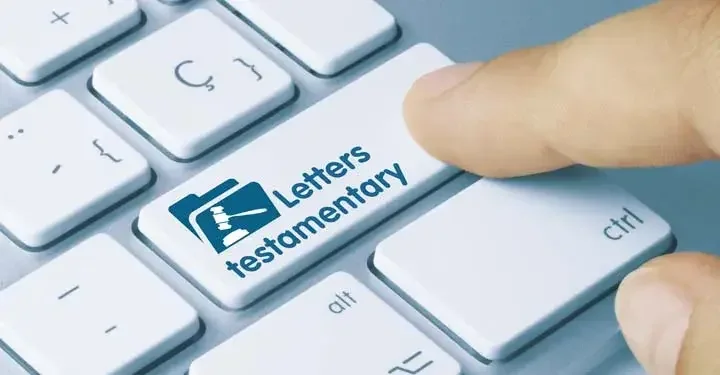As the executor of an estate, you are responsible for taking care of its financial matters. This means such responsibilities as paying the estate's bills and debts, gathering the estate's assets, and distributing these assets to the estate's beneficiaries. The first step in this process is to obtain letters testamentary, also known as a letter of testamentary, a document issued by a probate court that provides proof that an individual is an executor and therefore has the authority to act on behalf of the estate.

Letters testamentary vs. letters of administration
The probate process also sometimes requires letters of administration, a document the probate court issues when it appoints a personal representative of an estate in a situation called intestacy, or when a person dies without leaving behind a valid will.
Like letters testamentary, letters of administration give the estate's personal representative the authority to handle the estate's assets. The main difference between the two documents is that letters of administration authorize the personal representative to distribute the assets in accordance with the rules of intestacy, which vary by state, rather that according to the terms of a will.
How to obtain letters testamentary
As part of the probate process, letters testamentary are issued by your state's probate court. To obtain the document, you need a copy of the will and the death certificate, which are then filed with the probate court along with whatever letters testamentary forms the court requires as part of your application. You may also need to provide some information about yourself, including identifying information that shows you are the person named as the will's executor.
Once the proper documents have been filed, the court schedules a hearing date. During the hearing, the court verifies the validity of the will filed with your application and assesses whether you are fit to carry out the duties of an executor. While the criteria for acting as an executor varies from state to state, a common qualification is that an executor must be mentally competent.
Once the court issues the letters testamentary, you can obtain certified copies of the document. It's advisable to obtain more than one certified copy, as you will likely need to provide one to each financial institution you deal with.
Expiration of letters testamentary
Because letters testamentary legally authorize you to handle the financial matters of an estate, once you have completed the distribution of the estate's assets in accordance with the terms of the will, your responsibility as executor for administering the financial affairs of the estate ends.
A letter of testamentary provides the institutions and individuals with whom you will be interacting in your capacity as executor adequate proof that you are authorized to manage the assets of an estate. Obtaining such a letter is not a particularly complicated process, but if you need help doing so or would like further guidance on other matters concerning wills and estate management, consider using an online service provider to guide you through the process.

